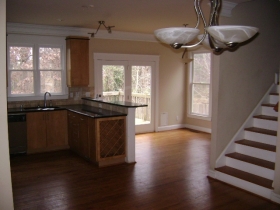
You have no doubt heard it said that cities with the fastest price appreciation are now the cities with the greatest deflation in home prices. This holds true for many of the cities in the list below. For example, Atlanta, Ga., “led the nation in new construction during the 10- year run-up before the bubble burst;” according to a recently released report by Deutsche Bank. Atlanta now has the “most affordable homes in America.”
Huge Advantage to Purchase vs. Rent
The study shows Atlantans who rent are now paying 151% more per month than they could be paying if they purchased the equivalent property. The median home price in Atlanta declined by 33% during the 2006-2010 housing crisis. February 2011 sales indicate an additional 14% price drop versus the previous year.
Top 10 Best Cities For Homebuyers
- Atlanta, GA
- Orlando, FL
- Rochester, NY
- Cleveland, OH
- Tampa-St. Petersburg, FL
- Las Vegas, NV
- Jacksonville, FL
- St. Louis, MO
- Buffalo, NY
- Memphis, TN
Quality Report
There are many “Top 10” reports that leave us scratching our heads, but this report provides thorough documentation regarding how each city earned its spot on the list. It also assesses how much money is being “left on the table” by those who choose to ‘rent versus buy’ in each market. This is a great time to ensure the rent-versus-buy statistics are part of our marketing efforts.
Added Incentive
Brokers and owner occupant buyers should visit www.homepath.com for details on the 3.5% home buyer incentive from Fannie Mae. It’s nationwide. Check the details to see if your dream home purchase qualifies.
Visit our website for more information about buying and selling homes of every style, size and price range.




 There are ten hot markets for buying that might surprise you, and if you are thinking about buying, you should give these markets some serious consideration.
There are ten hot markets for buying that might surprise you, and if you are thinking about buying, you should give these markets some serious consideration.
